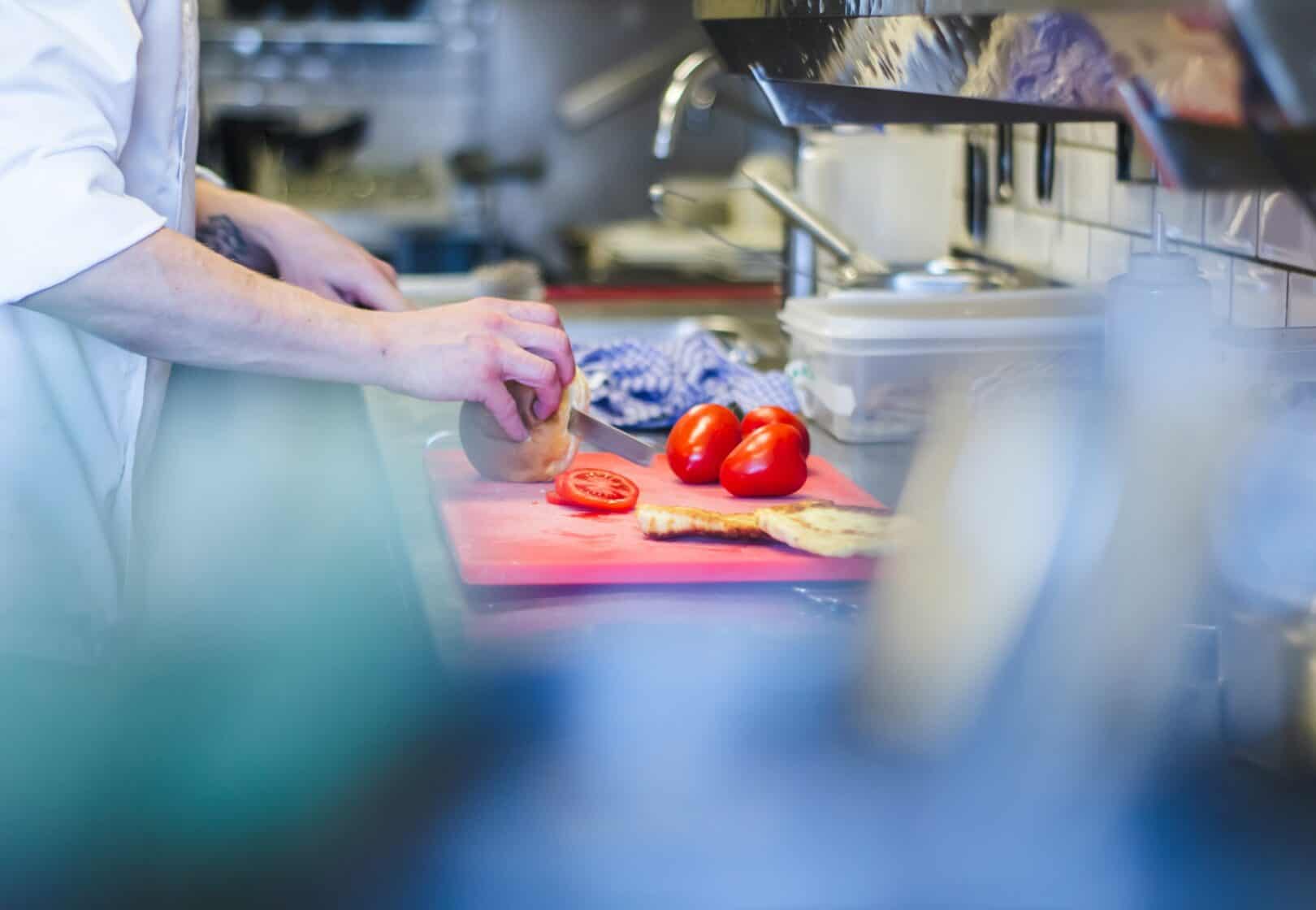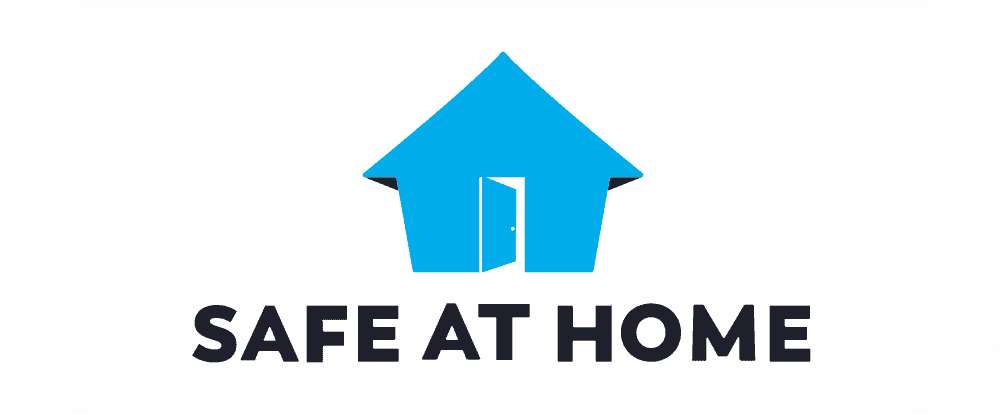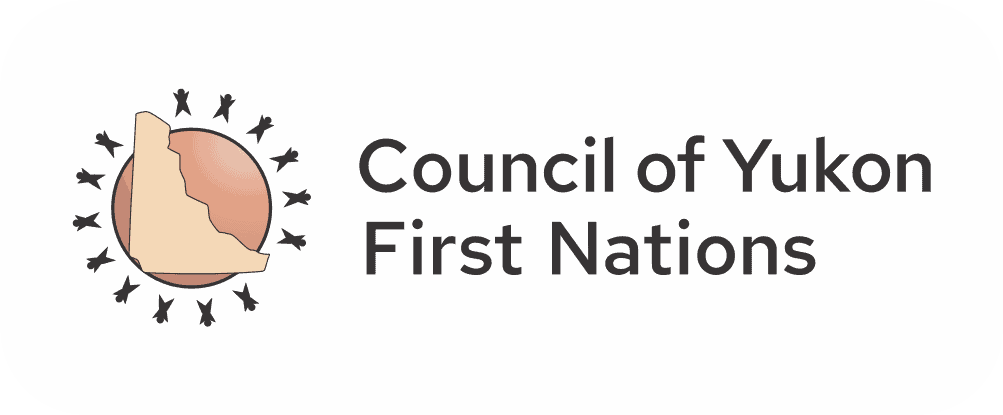Supporting Food Security in Whitehorse
A new partnership has 405 Alexander's kitchen team preparing up to an additional 470 meals per week, to be served at two community locations.
Mar 8 2024 | Connective

“Food security exists when all people, at all times, have access to sufficient, safe, and nutritious food to meet their dietary needs and food preferences for an active and healthy life.”
– World Summit on Food Security
Food insecurity is a serious public health problem in Canada. When people have access to affordable and nutritious food, they are healthier, more productive, and better able to focus on other areas of their lives, such as family and community. Without it, they are at greater risk for poor health and the development of a variety of chronic conditions.
The experience of food insecurity can take different forms, and families and individuals may go through different stages at different times, as the circumstances of their lives shift and change. Common measurements of food insecurity, ranging from more moderate to more severe, can include:
- Concerns about running out of food before there is more money to buy more
- The inability to afford a balanced diet
- Missing meals and going hungry
- Not eating for whole days because of a lack of food
With the cost of living continuing to rise, spending more to buy less is a reality for an increasing number of Canadian families – especially in the North. Though territorial data has been lacking for the last several years, Yukon, Northwest Territories, and Nunavut have consistently shown higher rates of food insecurity than all ten provinces.
The most recent Territorial data available from PROOF, a leading voice on food insecurity research in Canada, showed that in 2017-18, 16.9% of Yukon households were food insecure.

Rates of Household Food Insecurity Across Canada, 2017-18
Responding to these sorts of complex challenges requires governments and community agencies to come together. That’s why earlier this year, in addition to serving meals at 405 Alexander and preparing takeaway meals for those in need, Connective was excited to broaden its support of local food security through a new partnership with The Safe at Home Society and the Council of Yukon First Nations.
This interim program started in January and will run until the end of March. It allows the kitchen team at 405 Alexander to prepare an additional ~470 meals per week, to be served at two community locations.
 up to 40 lunches and 40 dinners / day
up to 40 lunches and 40 dinners / day
Thu – Fri – Sat – Sun
Former High Country Inn
4051 4 Ave, Whitehorse
Meals served at 12PM and 6PM
P: 867-667-7233
 up to 50 dinners / day
up to 50 dinners / day
Tue – Thu – Sat
Family Preservation Program Building
Suite 130, 205 Black Street, Whitehorse
Meals served from 5:30 – 7:30PM
P: 867-393-9200 ext. 9236
For Connective’s kitchen team, this opportunity to contribute to the community means a lot.
“The work we do is hard at times but very rewarding. We are proud to be able to do our part to combat food insecurity in our community. “
– Kitchen Worker, Connective
For our partners, this collaboration is helping to fill some urgent gaps. Safe at Home supports individuals who are experiencing homelessness and who are precariously housed. They also provide supportive housing for 29 individuals, at the site of the former High Country Inn. Many of those individuals are experiencing a multitude of barriers – food insecurity being one of them.
Safe at Home’s Executive Director explained how, “Folks with chronic health conditions, mobility issues, and/or who are active in their substance use need easy access to nutritious food. But affordable and safe transportation to the food bank, to meal programs, and grocery stores is a huge issue. Providing access to meals through our Warming Centre was an opportunity to bridge all of these gaps for those we support.”
Staff at CYFN felt similarly, “This is helping to fill the needs of people that are food insecure, and that are struggling to feed their families and meet the nutritional needs of growing children. The more we are able to work together on initiatives like these, the greater our impact will be in helping to create a better Whitehorse for all of us.”
“There is no magic bullet to addressing the crises facing many of our community members. We have witnessed greater success and stronger impact when we partner, leaning on each other’s skillsets and resources to have a broader reach. This is an example of such a partnership – it’s a win-win with community members at the centre.”
– Executive Director, Safe at Home
This new partnership was made possible in thanks to funding from the Government of Yukon, through the Downtown Safety Plan Initiative. It is just one of the ways that Connective is working to expand support services for vulnerable populations in the community.